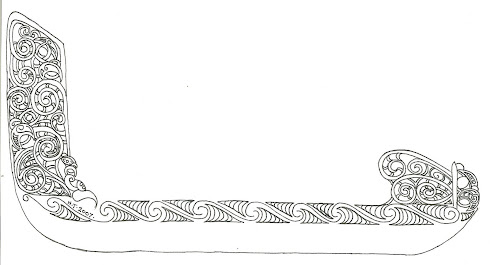ASSESSMENT AS LEARNING
I have been reading and listening to a lot about Assessment - Assessing to learn, Assessing for learning. Yet I am still concerned that these do not fulfill my belief in “Assessment AS Learning”. Assessment it seems is viewed as a teacher task or teacher imposed activity. How does this encourage:
- personalised learning?
- intrinsic motivation in the process?
- our students to become life long learners?
Personalised learning encourages a shift from students as passive recipients to individuals who engage in an active two (or more) way process. Central to P.L . is assessment. If we aim to involve students in the process of learning then it is only natural to include them in assessment processes.
This is one reason why I like Rubrics so much. In a well designed rubric, the assessment process becomes transparent. Students see what is required and measure themselves within it. The next steps are visible. Encouraging their use in self and peer assessment allows all involved to use the process and points to where they need to go next. As students become more familiar with the role of a rubric, their involvement in the making of the rubric, and the assessment criteria becomes even more powerful.
People no matter what age, change themselves more powerfully than having others impose their ideas and expectations. As a parent I could never see the reason why a teacher and parent met to discuss the child’s learning without the child being an active participant in this conversation. Is their involvement not valued? Is it the parent and teachers role to manipulate the learner, accept the accolades on their behalf etc.?
I do not simply want to “train” children, to have them jump through hoops and measure them without their understanding the value and process involved. More powerful than this is to have students able to direct their own learning, to know what they are being assessed on and to have them involved in this process.
It is the process of assessment that is important. If we can equip our children with a clear process coupled with clear understood expectations, their independence in learning, their intrinsic motivation in learning and their development as life long learning is enhanced. Students can develop a scaffold which they can use and transfer to other situations.

2 comments:
I believe not every child keeps their inert desire to learn. They loose that motivation along the way and we as teachers need to take the blame. Are we boring? Are we catching our students interest? What do we need to do to capture interest and to know what they want to learn? When they tell us how do we know they are learning? How can we tell that they are just wanting to play on the internet or seeking innformation unless we are on top of them every minute of their internet usage? Assessment for learning can focus chn and teachers on the global and specific learning, feedback and feed forward, while ICT and inquiry learning are the vehicles by which we can add the motivation to learn. For the future I can see ICT and AfL going hand in hand enriching all learning, both students, teachers and the community. We live in an inspiring time only if we as teachers can learn and grow with our students. I challenge you all!
Thank you very much for your comments. I am reading a book at the moment which looks at living above the line. "Above the line" is living with Responsibilty, Ownership and Accountability. Below the line is blame, guilt and denial. I want to live above the line.
I believe that no-one really has the power to change anyone else. We can influence and inspire, others can bully and cajole but change only occurs inside each of us if we let it.
I believe that we can all lose our inert desire to learn at times and I also believe that this can be rekindled given the right environment and motivation. This is the most important role of a teacher. To inspire learning. Inquiry is such a rich tool in which to do this. To have children know that their learning can make a difference to them and/or those around them. Learning could be simply that they wanted to know, or it could be using what they are learning to create something new for them, and transfer the information they have gathered to a meaningful context.
"What do we need to do to capture student interest and to know what they want to learn?". Isn't talking with them and asking them questions a good place to start? Listening carefully to their answers is another! Discussing what and why they might want to learn, what difference the learning might make to them helps too.
Three little questions help me to understand and know what students are learning and who is in the learner seat:
- What are you learning?
- Why are you learning it?
- What difference is it going to make?
Small questions which lead to powerful insights.
Best wishes
Lorraine
Post a Comment